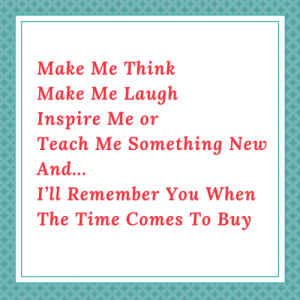After 10 years of research, Stephanie Harrison defined Old Happy: our society’s incorrect definition of happiness and the culture we’ve created around it, and how to improve it.
BY Next Big Idea Club6 minute read
Stephanie Harrison is an expert in the science of happiness and founded a company called The New Happy, where she teaches millions of people how to be happier. Through it, she hosts The New Happy podcast. She is also a Harvard Business Review and CNBC contributor, and her work has been featured in other publications such as Fast Company, Forbes, and Architectural Digest. She regularly speaks at Fortune 500 companies, advising on employee well-being and company culture.
Below, Harrison shares five key insights from her new book, New Happy: Getting Happiness Right in a World That’s Got It Wrong. Listen to the audio version—read by Harrison herself—in the Next Big Idea App.
1. Everything you know about happiness is a lie.
When I was in my early twenties, I had everything that I thought would make me happy. I had a prestigious job, lived in New York City, and had complete freedom. Yet, I was absolutely miserable. At first, I ignored my emotions. Then, over time, I started to experience more challenges: getting physically ill, struggling with my mental health, and feeling lonely. One day, I found myself lying on my bedroom floor sobbing hysterically, wondering why I was so desperately unhappy.
Then, I had a moment of clarity. What if there wasn’t something wrong with me? What if I had been lied to by the world around me? Perhaps everything I had been told about what I needed to do to be happy was wrong.
At that moment, I didn’t know exactly what the lies were, but now, after 10 years of research, I do. I call it Old Happy: our society’s incorrect definition of happiness and the culture we’ve created around it. Old Happy begins with the messages we receive as children from our families, all the way through to the media we consume and the institutions that enforce it. It comes from three cultural forces of individualism, capitalism, and domination, which tell us that to be happy, we must perfect ourselves, do more and more, and do it all by ourselves.
The devastating truth is that pursuing these objectives won’t make you happy. In fact, both research and experience show that it will actually make you miserable.
2. A happier life starts with unwinding Old Happy.
Due to Old Happy, Americans are struggling with unprecedented levels of unhappiness, illness, burnout, and loneliness, with no idea what’s wrong or what they need to do to feel better again. The evidence I’ve amassed about the harms of Old Happy is astounding. To live truly happy lives, we start by letting go of our Old Happy beliefs and adopt new ones by undergoing three key shifts:
- Old Happy taught you that you’re not good enough and that there’s something wrong with you. Instead, you need to start seeing that you are worthy exactly as you are.
- Old Happy taught you that, to prove how good you are, you must achieve a certain set of external goals and succeed. Instead, you need to focus on expressing yourself and growing as a person in whatever way feels authentic to you. You are not defined by your successes or failures.
- Old Happy taught you that you have to do everything by yourself. Instead, you need to see that you are connected to others and that no one does anything alone. We are social creatures who are wired to need support. You are inextricably connected to others.
The best way to do this is by naming Old Happy when you see it pop up in your life. When you feel the pressure to overwork, say to yourself, “That’s Old Happy, not me.” When you judge your appearance, remind yourself, “I’m comparing myself to Old Happy’s made-up standards.” When you feel like you can’t ask for help, tell yourself that no one ever does anything alone, and it’s perfectly human to need support.
3. The real secret to happiness is counterintuitive.
Once we’ve named Old Happy and started unwinding it from our lives, we can discover the real secret to happiness. If you want to be happy, you need to help other people be happy. This is the proven path to happiness, supported by my research across multiple fields.
Everyone wants to live a happy life. The way to experience that is through finding ways to be of service to one another. Helping others is scientifically proven to benefit our well-being; it connects us to one another and helps us find a greater purpose in life. It doesn’t just improve your mental health but your physical health, too. Just like we have a need for food and shelter, we also have a profound need to go beyond ourselves and help others.

Many people have a narrow definition of helping: we think of it as going out and volunteering. While that’s a wonderful way to help, we need a more expansive understanding. You help by listening to your loved ones, holding the door for someone, collaborating at work, sharing your ideas and unique perspective, and encouraging others to be their best. Every day, there are countless ways to help, meaning there are countless opportunities to experience happiness.
4. You possess unique gifts that need to be shared.
I argue that the best way to help others comes from sharing your unique gifts with those around you—whether in your family, communities, at work, or for the broader world.
There are three types of gifts that all human beings possess: humanity, talent, and wisdom:
- Your humanity is who you are as a person. It’s your character, your best qualities, your good and loving nature. When you call a friend to listen to them talk about a challenge, take time to play with your kids after work, or smile at a stranger on the street, you are using your humanity gifts.
- Your wisdom is what you have learned. Each of us possesses a completely unique life packed with experiences that teach us important and meaningful lessons. That wisdom can be used to help people in countless ways—from helping others through hard times to preventing them from ever happening.
- Your talent is what you can do. Talents are cultivated through time, energy, and effort. Every single one of us has the power to either develop new talents or deepen existing ones, using them to inspire others and make powerful contributions.
Your gifts are what make you you. When you use them in service of others, you’ll experience profound joy, purpose, and contentment. That’s what New Happy is all about: being yourself and giving of yourself.
5. Your happiness has the power to change the world.
When we live by Old Happy, we are not only making ourselves miserable, but we’re contributing to creating a world that makes the collective unhappy, too. It only leads to competition, judgment, disempowerment, burnout, and isolation. No one wins when Old Happy is our dominant understanding of happiness.
But when you adopt New Happy, all of that changes. Through your daily actions, you’re now contributing to making the world a better place. By helping others experience happiness and by devoting your incredible gifts to the problems we face, you are slowly but surely transforming the world into a place where more and more people get to be happy. Isn’t that what we all long for? A better, more just, more compassionate world?
I often hear from people in my community that they feel so helpless about the state of the world. But you can start making it better right now simply by changing your definition of happiness and living in alignment with it. Working for the greater good facilitates your highest good.
This article originally appeared in Next Big Idea Club magazine and is reprinted with permission.
ABOUT THE AUTHOR
(1)






